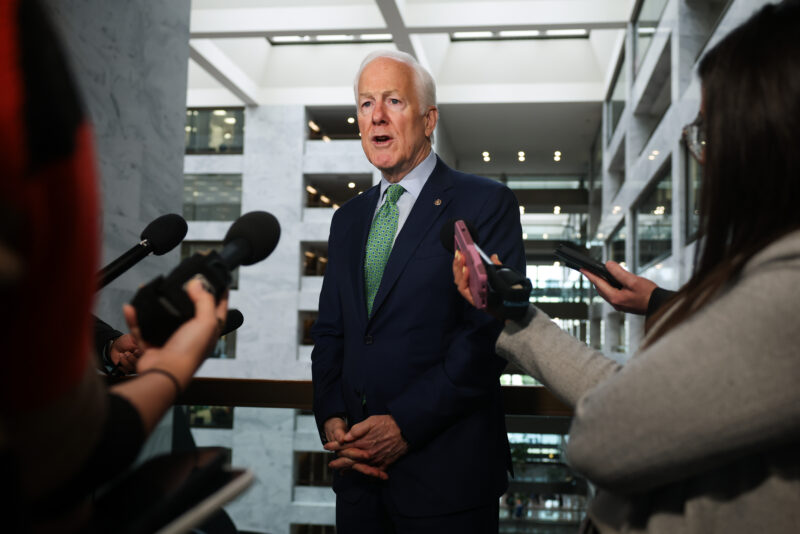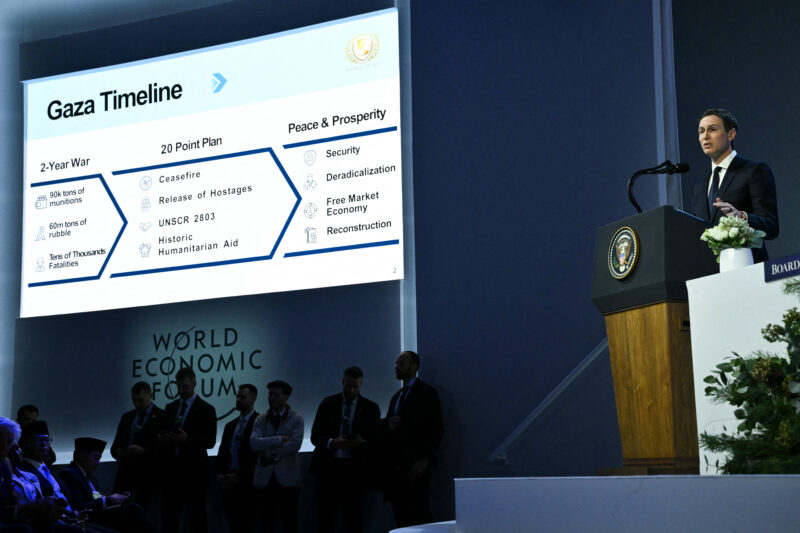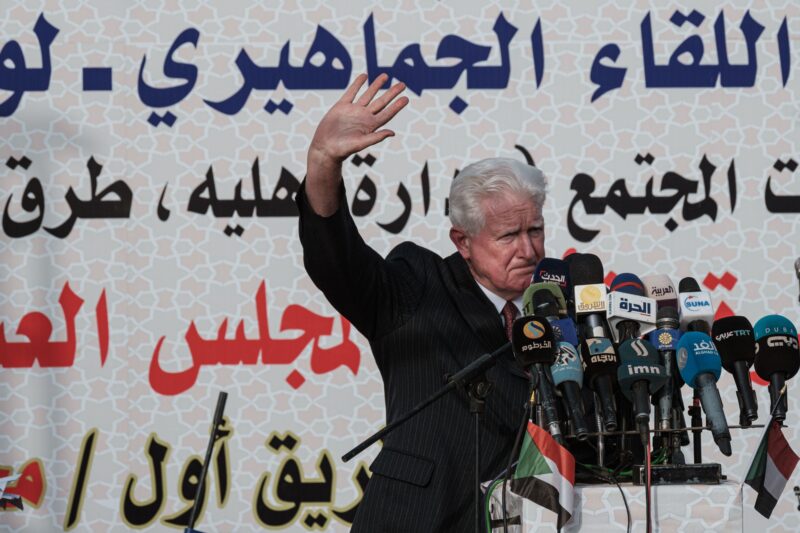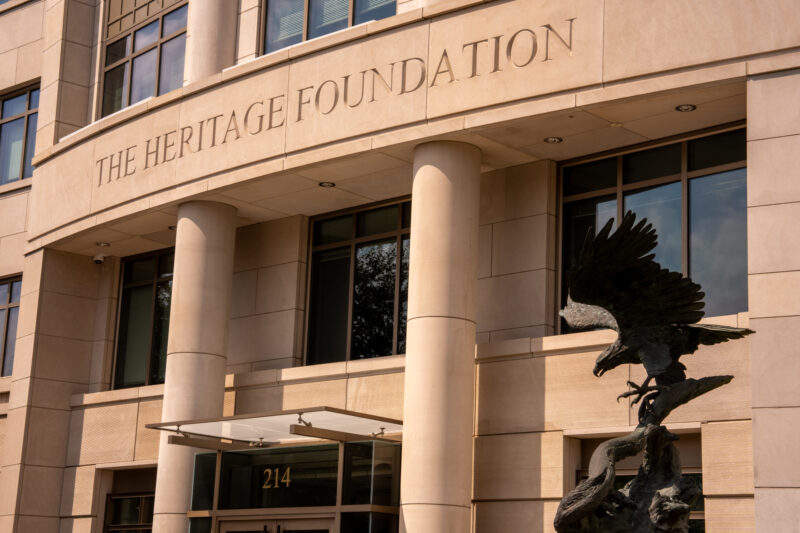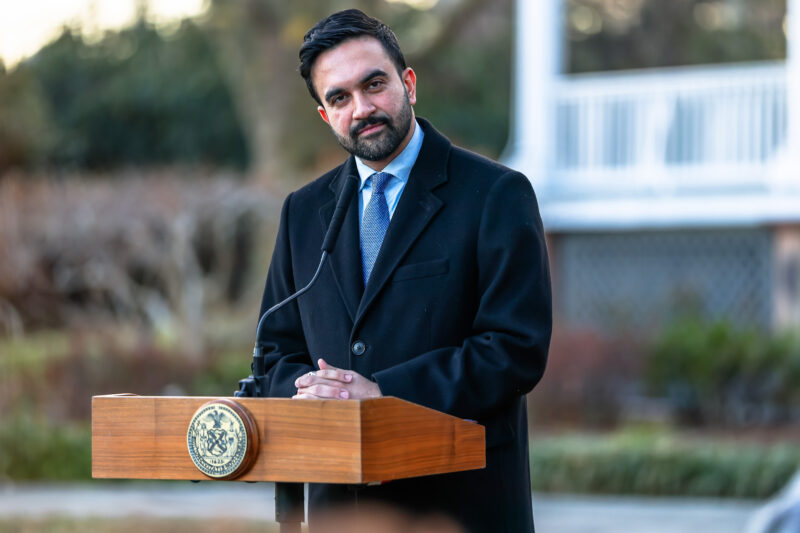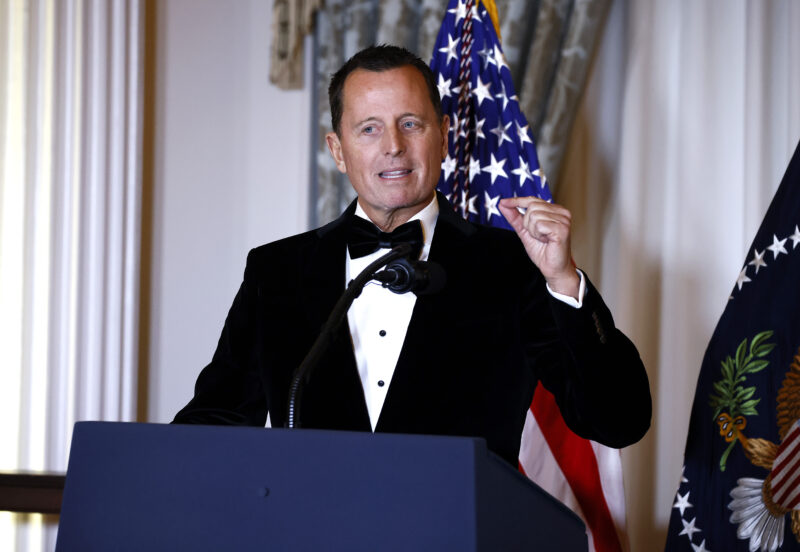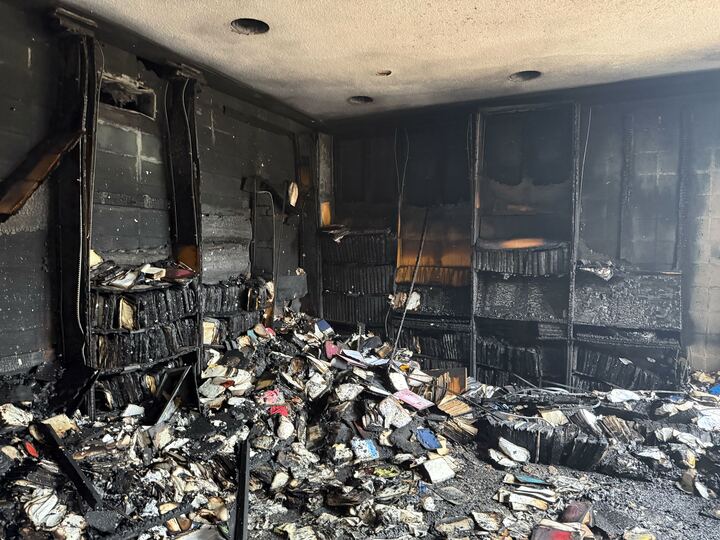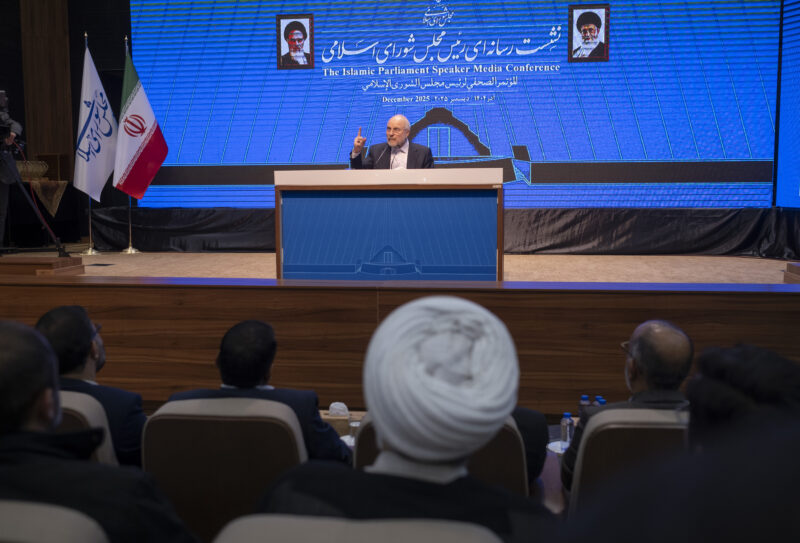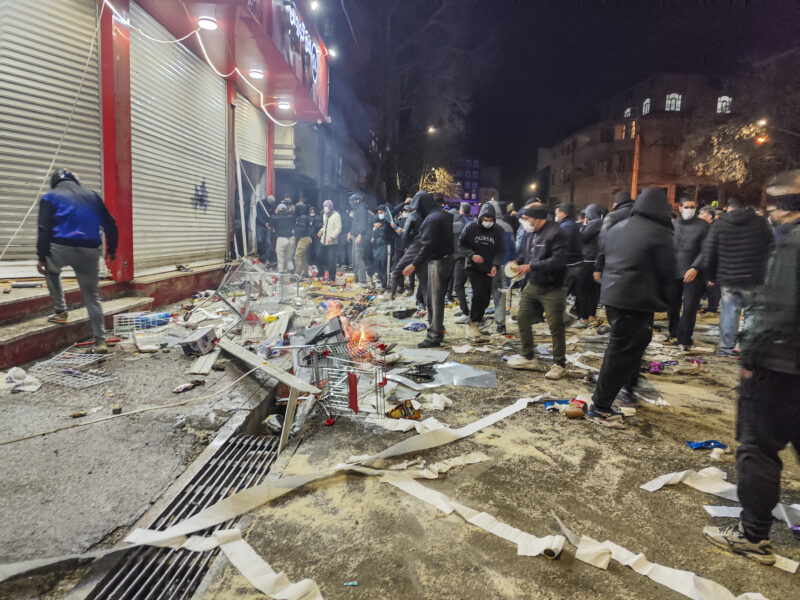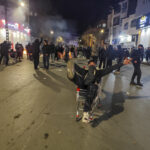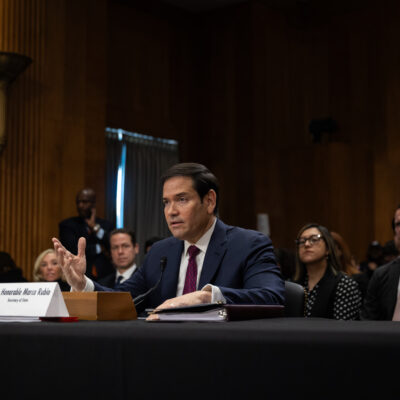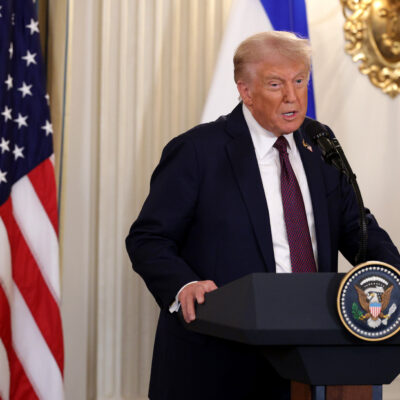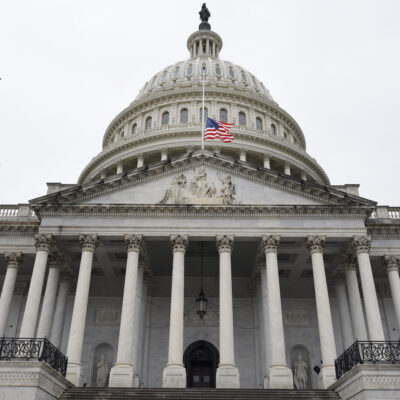House Foreign Affairs Committee votes to cut off U.S. aid to UNRWA
The embattled aid group’s ‘time is up,’ Rep. Chris Smith (R-NJ) said

Dawoud Abo Alkas/Anadolu via Getty Images
Palestinian families stand outside a school affiliated with the United Nations Relief and Works Agency (UNRWA) at the Daraj neighborhood as the Israeli attacks continue in Gaza City, Gaza on February 6, 2024.
The House Foreign Affairs Committee voted 30-19 on Tuesday to advance a bill immediately and permanently cutting off all U.S. aid to the United Nations Relief and Works Agency (UNRWA) in response to allegations that some of its employees were involved in the Oct. 7 attack on Israel, in addition to long-running issues that have plagued the Palestinian aid agency.
Democratic Reps. Kathy Manning (D-NC), Jared Moskowitz (D-FL) and Brad Schneider (D-IL) voted in favor of the bill, although Manning and Schneider had expressed concerns about the legislation.
Republicans argued that the issues with UNRWA, including its ties to terrorism, the use of its facilities to house Hamas infrastructure and weapons and its use of antisemitic classroom materials are longstanding.
“This is a clean bill that will go a long way to solving a terrible problem. UNRWA is the most corrupt, antisemitic, terror-complicit agency perhaps ever, but certainly at the United Nations,” Rep. Chris Smith (R-NJ) said. “Yes there’s humanitarian concerns, we all recognize it. But it can’t go to UNRWA. Their time is up. There needs to be a pivot, very real and very decisive.”
The committee approved an amendment from Smith to the original bill making clear that the U.S. may still provide aid to other humanitarian organizations operating in Gaza, so long as the secretary of state can certify that those groups do not promote antisemitism and are not affiliated with individuals who do. Republicans argued that other U.N. agencies and NGOs are able to step up immediately to fill the gap that UNRWA would leave.
Democrats made the case that UNRWA cannot be immediately phased out without triggering a mass humanitarian crisis in Gaza, which they said would imperil Israeli and U.S. security, potentially even force Israel to prematurely stop its military campaign and possibly destabilize the West Bank, Lebanon, Jordan and Syria.
They repeatedly said that Israel opposes the UNRWA’s immediate dismantling, and that no other agency has the capacity to immediately replace it. Israeli officials told The Wall Street Journal earlier this week that the agency should be restructured after the war.
Committee Ranking Member Greg Meeks (D-NY) introduced an amendment that would have delayed the funding cutoff until the secretary of state could certify that a viable replacement organization had been identified. His amendment failed along party lines, 26-21.
“We all have seemed to say that the lifespan of UNRWA moving forward has to be reviewed and changed,” Meeks said. “But we’re in a particular moment of crisis right now, and the deal is whether or not right now, today, if we defund UNRWA, what would happen to millions of people?”
Manning introduced an amendment that would allow U.S. funding to UNRWA to resume if the secretary of state can certify that UNRWA does not employ any individuals who are knowingly providing material support to Hamas — a category she said would include teaching antisemitic ideologies in UNRWA schools — or participated in the Oct. 7 attack.
She argued that UNRWA should be replaced after the current war is over. Her amendment failed along party lines, 27-22.
Schneider introduced, but withdrew, an amendment that would set a one-year timeline for eliminating UNRWA, creating a congressional and interagency process that would work to implement a replacement.
Rep. Brad Sherman (D-CA), another pro-Israel Democrat and longtime UNRWA critic, ultimately voted against the bill, but said he would have supported it if it cut off UNRWA funding at the end of the year, instead of immediately.
The committee also approved a bill that would redesignate the Houthis as a Foreign Terrorist Organization, a label the Biden administration has resisted applying, even amid the Iran-backed militia group’s attacks on global shipping in the Red Sea.
That bill passed by a 34-13 vote, with Reps. Sherman, Manning, Moskowitz, Schneider, Gerry Connolly (D-VA), Bill Keating (D-VA), Colin Allred (D-TX) and Greg Stanton (D-AZ) voting in favor.
Republicans argued that the Biden administration’s decision to designate the Houthis as a Specially Designated Terrorist Group but not reapply the FTO designation was an insufficient half-measure, and that the U.S. needs to use the strongest sanctions tools it has available to counter the Houthis.
Opponents of the bill echoed the administration’s concerns that applying the FTO designation would cut off critical humanitarian assistance to Yemen and worsen the humanitarian situation in Yemen.
The committee voted on a near-unanimous basis in favor of a bill to permanently codify stringent export controls the administration has imposed targeting Iran. The move comes primarily in response to findings that Iran’s drones and missiles contain a significant quantity of U.S.-produced parts and technology. Only Reps. Joaquin Castro (D-TX) and Sara Jacobs (D-CA) voted against the bill, which passed 44-2.
Additionally, the committee voted 26-20, along nearly partisan lines, to advance legislation that would modify procedures for congressional review of arms exports, raising the current threshold for notifying Congress about individual sales in response to inflation, but also imposing new notification requirements based on the cumulative value of arms sales over time.
Moskowitz was the only Democrat who supported the bill. Democratic opponents of the bill argued that the bill would effectively decrease Congress’ oversight of foreign military sales.
Military leaders have warned that the slow pace of U.S. arms sales has prompted some allies, including in the Middle East, to look to China as alternative sources for weaponry.




























